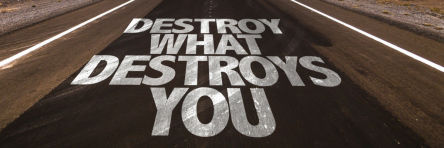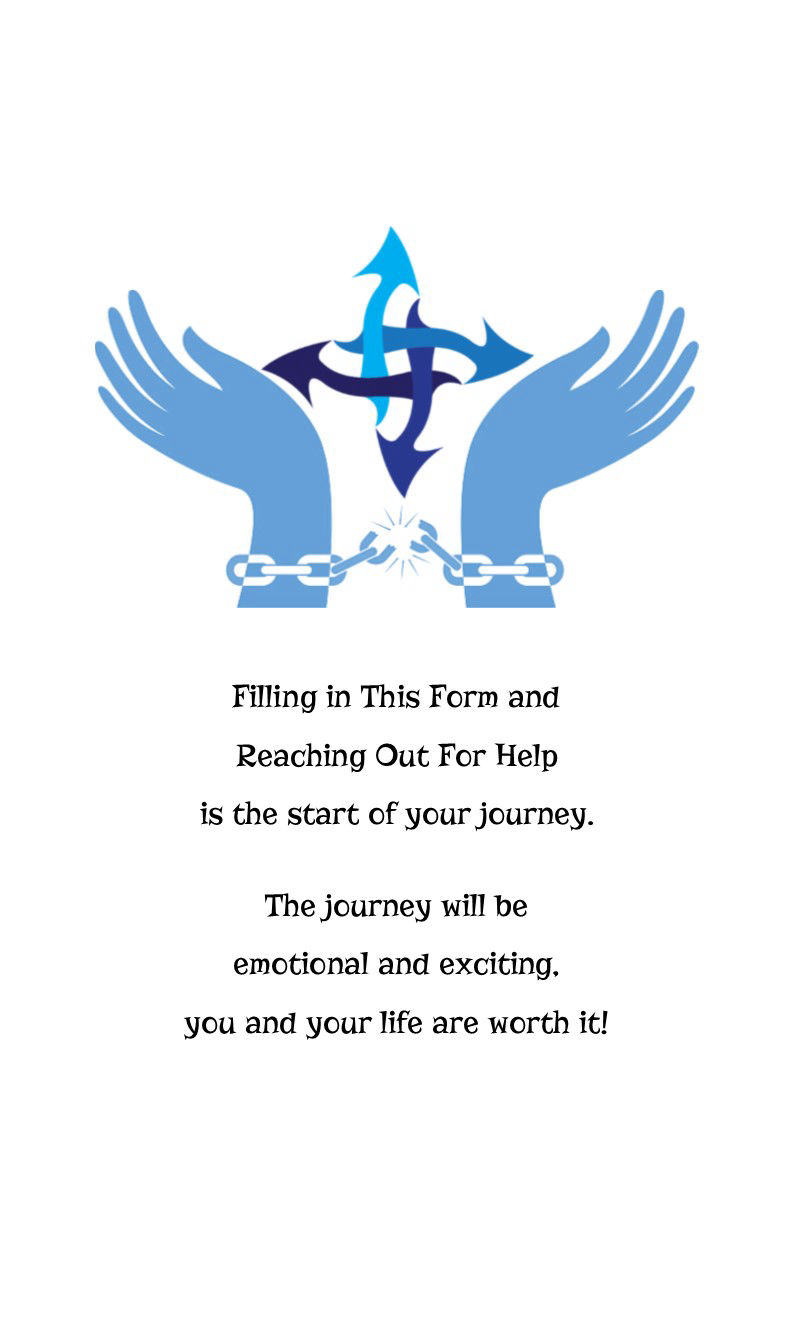1. Avoid - Stay away from the triggers that lead to urges. Avoid situations, sensations, or stimulations that may bring on an urge. The earlier in your recovery that you identify high-risk cues that trigger urges, the earlier you can start avoiding them or escape when unexpectedly faced with them.
2. Escape - Get away from the urge-provoking situation. If you find yourself there, leave immediately.
3. Distract Yourself - Concentrate on something other than your urge. Distract yourself with activities you enjoy, especially if the urge is intense. Simple activities, such as counting objects or saying the alphabet backward, can fill up your attention so that you have nothing for the urge. Focusing on your Hierarchy of Values is a positive form of distraction.
4. Develop Coping Statements - Instead of thinking, "l deserve a drink because I have to deal with this problem," tell yourself, "Even though it sucks that I have to deal with this problem, drinking isn't going to help me."
5. Review Your CBA - It may not turn off the discomfort, but it may help you maintain your motivation to resist your urge. It may help to review it regularly, even when you're not having an urge.
6. Rate Your Urge - Write in your urge log. Put it in perspective and look for exaggeration. On a scale from one to 10, rate its Intensity. Are you exaggerating! Compare the discomfort of resisting the urge to other uncomfortable things, such as being boiled alive or having your fingernails pulled out.
7. Recall Moments of Clarity - Think Of a moment when you realised using was a problem for you, or a moment when you knew that changing your addictive behaviour was, without question, the right thing for you to do.
8. Recall Negative Consequences - When you feel an urge, you may think only of the benefits of using. To create a more accurate picture, carry the thought through to include the negative consequences that follow. For example, if you've given up smoking and a cigarette urge arises, you may fantasise about how good it feels to inhale the smoke. Carrying that thought through means you also remember how badly you cough when you walk up a flight of stairs.
9. Picture Your Future - Visualise yourself, feeling good about resisting the urge. For example, paint a mental picture of getting up early Saturday morning without a hangover.
10. Use the Past - Recall successfully resisting urges in the past. Remind yourself that the urge will pass and how you have routinely resisted them.
11. Ride the Wave - Observe the urge and visualise that you are surfing a wave that grows, crests, weakens, and disappears.
12. Call on Role Models and Coaches - Talk to others who have mastered coping with their urges to learn from their experiences. SMART meetings and the SROL message board and chat room are filled with people farther along in their recovery who are willing to encourage and support you.
13. Reach Out for Social Support - Talk with a non-judgmental and supportive person. It’s helpful to have a list of people you may call when you're feeling the discomfort of an urge. Let them know how they can help you because they may not intuitively know.
14. Accept the Urge - Recognise that it is uncomfortable and hold it at a distance. Experience it as you would any passing thought. Observe it as an outside Object. See it but don’t evaluate it. Acknowledge it as something that used to be a problem, then return your attention to whatever you were doing. Don't turn the urge into a bigger issue by pretending it doesn't exist.
15. Reflect on How You Feel When You Are Abstinent - Once withdrawal symptoms have passed, you will be feeling physically and emotionally better than when using. Realise that using again will make you feel bad again.
Advanced Strategies
1. Move Beyond Avoidance - In the early stages of recovery, it's wise to stay away from places that trigger urges whenever possible. Avoidance, however, is not a realistic long-term strategy.
Eventually, you'll be in a situation in which someone will offer you a drink, drugs, etc. You need to have the confidence to resist such offers. It may help to bring along a trusted companion for support and guidance.
• Put yourself in a situation that may trigger an urge, such as a restaurant that serves alcohol.
• Use whatever basic strategies (1-14) have helped you resist urges.
• Practice refusing offers of your addictive behaviour so that you can handle peer pressure. Visualise:
- Someone trying to persuade you to use, or making run or you if you refuse.
- Yourself confidently refusing.
- Someone Who stirs Strong emotions in you and is intent on getting to you to use.
- Keeping your focus and managing your responses.
2. Bring Out Your Urges - After you develop some mastery of coping with urges, you may want to confront them on your terms rather than wait for them to happen. It may help you gain confidence in your ability to cope with them. To bring Out urges:
• Visualise a past situation in which you had a strong urge.
• Allow yourself to feel the urge and visualise giving in to it. Let it pass.
• NOW, visualise the same situation again, only give in to the urge this time.
• DO this for as many situations as you need to.
• Using the same technique, rehearse a situation that may happen in the future.
3. Role-Play/Rehearsal - SMART meetings are safe places to role-play. Other people act the parts of the people you anticipate will challenge you in high-risk situations. The meeting facilitator can help set up a role-play. Here's a sample:
• Show your role-play partner how you think a difficult person will behave.
• Your partner plays the difficult person While you play yourself in the situation.
• Once you finish the scenario. swap roles, and do it again.
• The people watching the role-play Can then show you how they might handle the same situation differently by playing your part.
Consider role-playing challenges associated with events like holiday parties, weddings, and other special events.
4. Refuse to Use in Social Situations - There will always be occasions to use or act out - How do you deal with them? Here are some ways:
• Talk with a fellow recovering or recovered person about an upcoming event that you think may trigger an urge; a party, for example. update them afterward.
• Bring it up in a SMART meeting.
• Rehearse or role-play the event With a SMART group and by yourself. Role-play or visualise the whole event. Prepare answers to the questions people will ask. Visualise getting a soft drink. Do it in your mind until it becomes natural.
• If the host is a friend, tell them before the event that you aren't drinking. Enlist them as an ally.
• Take a more experienced non-drinker or a friend with you who knows your situation.
• Eat something before the event, especially if you don't know when, or if, you'll be able to eat again.
• Arrive late; leave early. prepare and use an escape plan. If necessary, prepare reasons for leaving early.
• Upon arrival, immediately get something non-alcoholic. You can then socialise with a glass in your hand not feel like you're standing out. This forestalls the "Can I get you something?" awkwardness.
• Remember, your drinking or not drinking is less important to others than you think. It’s unlikely anyone is watching you or focusing on you for long.
If someone insists that you use:
• Make eye contact. It shows You’re serious.
• Speak in a firm, unhesitating voice.
• Don't feel guilty. You have the right not to use.
• After yo u say no, change the subject. You only have to say no once.
page14


